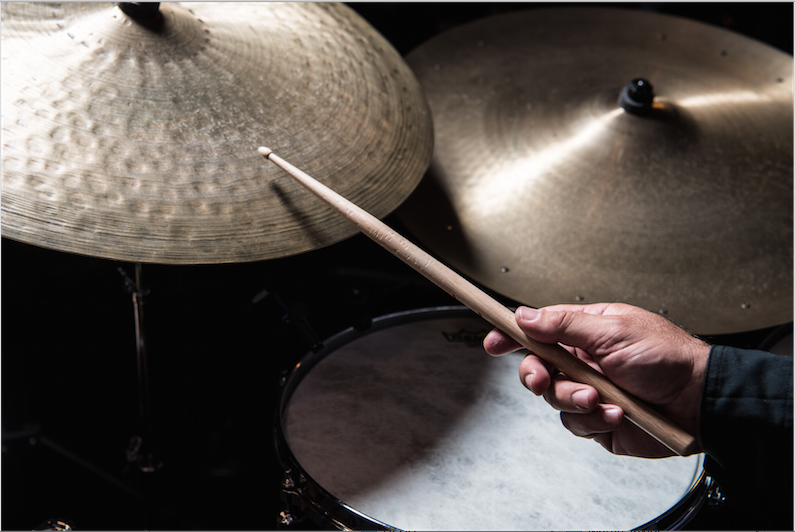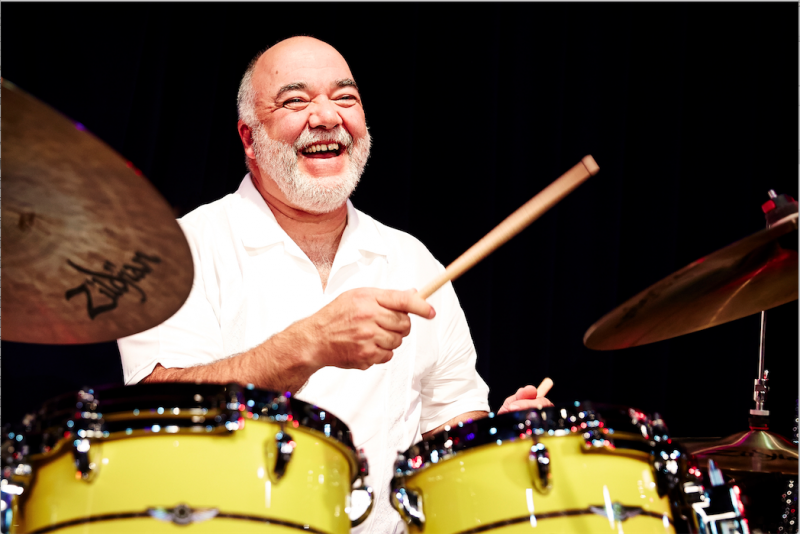Jazz Drumming Origins

How did we get to where we are now? The birth and growth of jazz music is an intriguing element of United States history. And one of the most interesting aspects of this growth is the progression of jazz drumming.
The history of the drum set is deeply entwined with jazz history, as it evolved through the explorations of early jazz drumming going back to percussionists in New Orleans. These so called “drum set inventors” made drum sets that provided them with the ability of creating sounds that came to their mind, and that could match what the other musicians were playing.
Jazz drumming began with a reliance on military rudiments. As time progressed, jazz drummers altered their military style beats to blend with particular forms of music. The first technical device employed by jazz drummers was the roll. Jazz drummers would play rolls with alternate beats to create a sequence of rhythms known as the “ride pattern.”
From the 1900s through the 19940s, jazz drummers performed as an accompaniment for dance bands that played ragtime tunes. Some such bands featured two drummers, with one on bass and the other on snare. These drummers were eventually consolidated into one man who played an actual drum set. Jazz drummers of this era like Warren Dodds should be revered as trailblazers. They began with military drums and evolved their sound with accoutrements like cymbals, cowbells, Chinese tom-toms and the wood block.
It is often said that the first era of jazz ended in the 1930s. Drummers like Buddy Rich and Chick Webb replaced technical experimentation with a new rhythmic structure known as “bebop.”
This era is characterized by flowing percussion rhythms, ride patterns that served as an underlying base and a sound that is best described as smooth. Bebop drummers enjoyed the first standardized drum sets that allowed them to play around with comping patterns and other auditory subtleties.
The 50s and 60s brought about an even more significant role for jazz drummers. The drums of this era were more much expressive in sound. Jazz drumming improvisation progressed into the dynamic rhythm patterns known as “broken time.”
Time Keeper
The role of the Jazz drummer changed with different jazz sub-styles and genres. As of the early 1900s, the role of the jazz drummer was to act as a ‘time keeper’. He was to keep the momentum of the music moving as well as add excitement to sections in the music that needed a change of mood or energy. This continued on in the swing bands of the 1920s and 1930s.
Change of the drummer's role
During the 1940s however, jazz drumming changed as drums became more integrated in to the ensemble, fully working together with other melodic improvisations being played by other musicians. In the 50s and 60s, the role of jazz drummers kept expanding to more melodic and interactive manners. A recorded history of styles and influences can help you hear how certain styles and patterns developed and were advanced by drummers over the 20th Century.
Jazz invites experimentation. Each era has had drummers who tweaked their equipment or who pushed the boundaries of the role of the drum within the band and altered the style of jazz drumming.
Beginnings of Jazz
In the 1890s when Jazz music was just beginning each band needed two drummers, one to play the bass drum and the other to play the snare drum. But in the mid-1890's Dee Dee Chandler in New Orleans and William F. Ludwig, Sr. in Chicago each developed a pedal that allowed them to play both bass and snare drums at the same time. Jazz drumming was heavily influenced by military music and included a lot of accessories. Percussion's role was just to keep time.
The end of the era saw tension drums developed allowing some tonality. Warren "Baby" Dodds started playing in the funeral parades in New Orleans and was one of the first players to push the boundaries and influence other players when he started to play breaks between phrases and solos.
The Jazz Age - 1920a
During this time, drummers focused on technical skill and experimented with cymbals and the bass drum. Sometimes drummers let the cymbals ring instead of choking them and the beat emphasis changed. Drummers would use their left hand and bass to keep time while playing syncopations with their right.
The jazz drumming role transformed between the start of jazz and modern jazz. Instead of just keeping the rest of the band in time, it is stylistically and melodically equal to any other jazz instrument.
Great Jazz Drummers
Everyone has their own personal preference as to who's the best, but here's a list of some unquestionably great jazz drummers in no particular order:
- Max Roach
- Gene Krupa
- Papa Jo Jones
- Bernard Purdie
- Harvey Mason
- Elvin Jones
- Billy Cobham
- Grady Tate
- Warren Dodds
- Chick Webb
- Cal Tjader
- Dave Weckl
- Buddy Rich
- Idris Muhammad
- Dee Dee Chandler
- Joe Morello
- Brian Blade
- Art Blakey
- Dennis Chambers
- Steve Gadd
- Peter Erskine
This last one is special because you can actually study jazz drums online with Peter Erskine right here at ArtistWorks! He'll even give you feedback on your drumming if you send him a video of your playing. Click below for more info and free sample lessons!
Related Blogs:









Comments